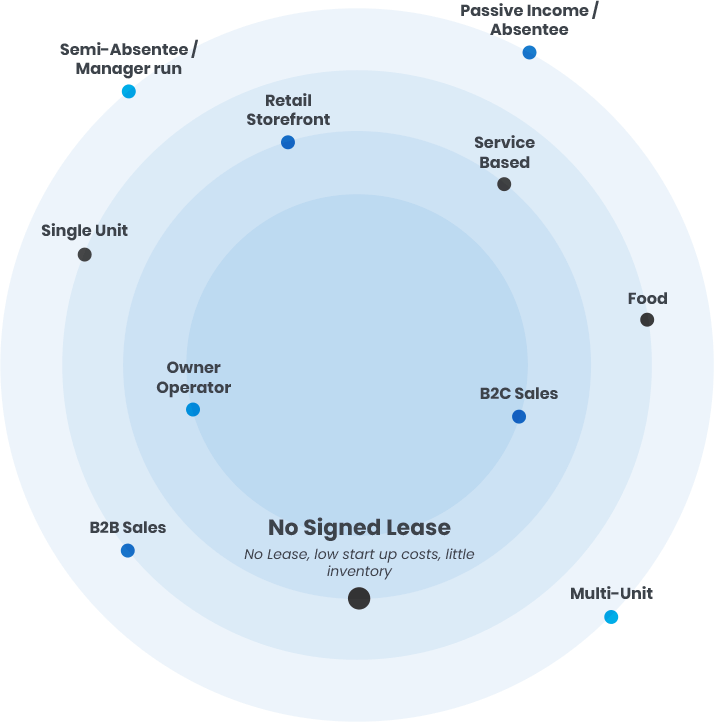Hey, I’m Ryan!
People come to me when they want help finding the right franchise to buy in California because of 3 reasons…
1. I actually am an active franchisee, so I understand exactly what you’re getting into. I’ve personally owned 24 different locations with multiple brands.
2. I know what makes a great franchise, and which franchises you should avoid. Every franchisor is going to tell you they’re awesome and you should be one of their franchisees. But that’s obviously just not true.
3. I hate sales. For most, buying a franchise is one of the biggest, most impactful decisions they’ll ever make. My goal is not to persuade you to buy a franchise (like many consultants out there) but to actually help you figure out if franchising is right for you; and if so, find a brand that matches your goals.
HOW FRANCHISING IN CALIFORNIA WORKS
Franchise Discovery Process
No commitment, just a conversation
Real Success Stories
- Kathryn C. | Dallas, TX
- Jeremy P. | Tennessee
- Cynthia T. | Dallas, TX
- Kevin S. | Baltimore, MA
- Tony T. | San Diego, CA
I found the entire process a joy, and very valuable
—James H.
“I would like to relay my strong recommendation of Franchising Path services. I had the pleasure of working with a consultant and found the entire process a joy, and very valuable. I feel that my consultant’s advice was given with my best interests in mind. His knowledge of franchising is a great asset in one’s search for the right business for them.”
Ready to start on your path?
Schedule a Conversation With Ryan
Learn More About Franchising in California
We've helped place dozens of people into franchise opportunities throughout California.

What Type of Franchise Owner Are You?
Taking the responsibility of a franchise owner is all about.

Choosing a Franchise That is Right For You
Subway is the 2nd lowest earner in the franchise industry.

Choosing your Franchise
Commited to the best outcome possible. Personalised approach, offering candidates.



